The danger of Dr M is that others may make him a demigod
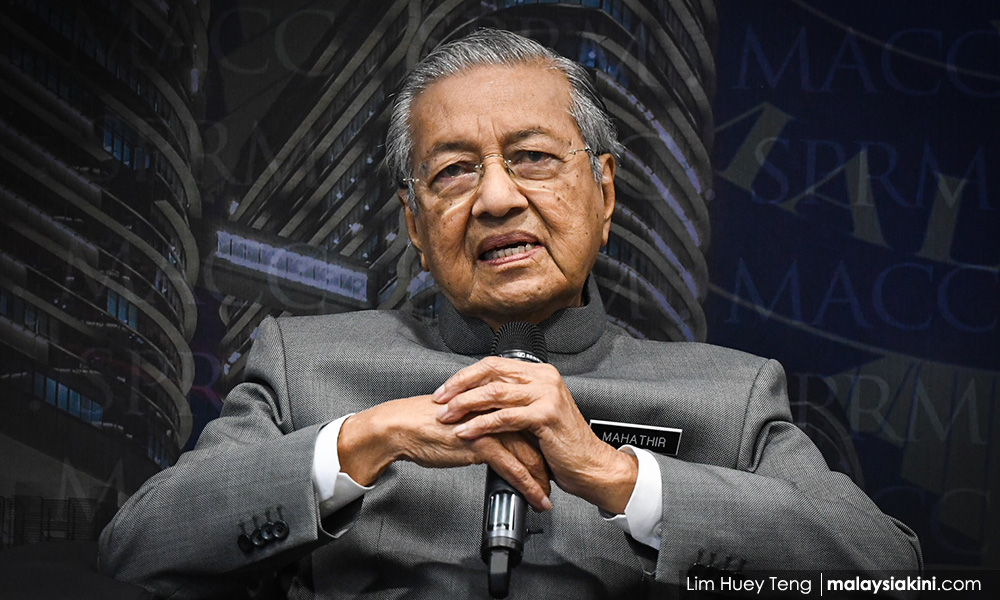
Anything the Pakatan Harapan government does is heaps better then what former prime minister Najib Abdul Razak did. In fact, defeating the BN government more than makes up for any unfulfilled promises made by Prime Minister Dr Mahathir Mohamad thus far. Time will tell.
PAS advisory board chairperson Mustafa Ali is right in defending the new government’s efforts. Describing the change of government and smooth transition as “positive developments” is itself a positive statement and a hallmark of the once missing “positive politics” desperately needed to rebuild the nation.
Mahathir is not perfect and will need time to perfect his administration, if ever. Some of his decisions since becoming country leader have been controversial.
His recent choice of former Election Commission chairperson Abdul Rashid Abdul Rahman to head the Electoral Reforms Committee is questionable. Surely someone like former Bersih chairpersons Maria Chin or Ambiga Sreenevasan would have been a better choice. They do not carry any political baggage.
Rahman (photo) served his former political masters instead of the public interest, and was determined to keep Umno in power from a racist purview, according to political commentator Kim Quek.

Kim said in a Facebook post yesterday: “So, it was he who had so skilfully mangled our electoral roll to favour Umno that the integrity of the Malaysian electoral boundary is now ranked at the very bottom of the 127 nations surveyed by the Electoral Integrity Project.” This blatant conflict of interest disqualifies him for the role. Will he expose his past sins?
Public servants who succumb to notions of self-perpetuation in their roles instead of defending the truth and high ethical standards disqualify themselves for high office.
One who did not compromise the truth or prostitute his abilities is Dr Lim Teck Ghee in the Asian Strategy and Leadership Institute (Asli) affair in 2006. Rather than secure his job with the organisation that refuted his findings that the Malays owned more than 30 percent of public companies, he resigned.
That is principle before profit. And if Mahathir wants us to trust his government he has to appoint people of integrity into important roles. Do not recycle tainted or questionable people. Otherwise, it is cronyism revisited, anathema to the reform agenda.
Patience is needed by all and no government is without fault. The role of the opposition and civil society is to highlight the mistakes and fallacies of government and keep it on an even keel for the sake of the nation.
Reports of positive changes taking place in the government are encouraging. But Mahathir has to avoid being seen as making unilateral decisions that appear more politically expedient than in the national interest.
How the public fills the void in checking the government is up to the individual’s sense of civic-mindedness.
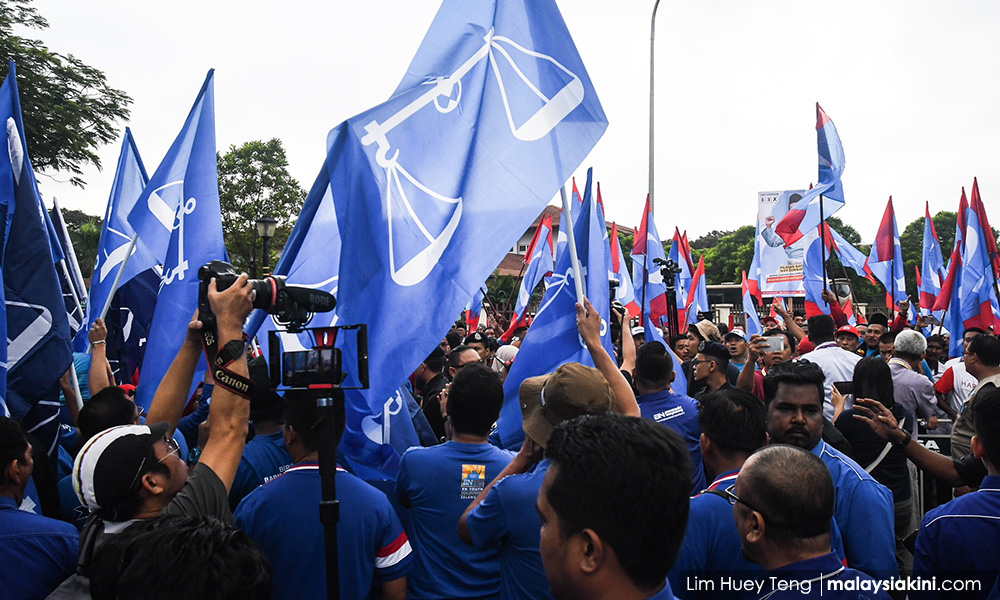
The BN opposition is impotent. The public space is a less risky and dangerous place for dissenting ideas today. After all, Mahathir and his government were all dissenters themselves. The space they will give for dissenting ideas is positive.
And the government checking itself within itself is another “must do” positive thing. The knell of death is when cabinet members fail to stand up to the leader for any criminal, outrageous, silly or bad decision. That’s Najib’s legacy.
Power corrupts and its use must be constantly checked both within and without.
Breaking the spell
In the eyes of certain Malaysians, I don’t know to what extent, Mahathir has made several faux pas that broke the spell of his reformist credentials.
Having a cup of coffee with Islamic preacher Zakir Naik offended many. This man who asked voters to vote for a corrupt Muslim over an honest non-Muslim does not deserve government endorsement. It might have been a lapse of judiciousness on Mahathir’s part. Or maybe he was playing to another gallery.
If Mahathir had met up with his former Internal Security Act detainees, in particular those innocent victims of Operasi Lalang 1987, it might have been a different story.
Principles before political expediency is reformist politics. The government has to gain the people’s trust. And you don’t gain trust or credibility by having coffee in public with someone like Zakir Naik (left in photo). I hope Mahathir empathises with those who are hurt by Zakir’s pompous heresies.

There is residual division between Mahathir and PKR president-designate Anwar Ibrahim supporters, and it has seemingly dragged PKR into the simmering discontent and disunity.
Let’s hope wisdom, humility and the idea of putting the nation first prevail over petty ambitions and puerile squabbling that could bedraggle the otherwise positive new administration. There are lots to do without petty squabbling. Mahathir must put out the fire.
The Pakatan Harapan may have “old-hat” leaders like Mahathir and Home Minister Muhyiddin Yassin in government but overall, in the reformist sense, they are still novices. And there is a learning curve for those learning the ropes in running a reformist government.
Mahathir is a novice reformer, having been an integral part of the “old BN establishment” notwithstanding his older dissident record. Then later as the country's leader, he acted according to his whim and fancy, like his protégé Najib Abdul Razak.
A reformist leader is different. I should not have to explain why or how.
Simplistically, doing the opposite of what the BN has done is good enough. The Pakatan Harapan manifesto spells out the major differences with the kleptocratic BN. People have an expectation not to receive more of the same BN flaws and white-collar crimes.
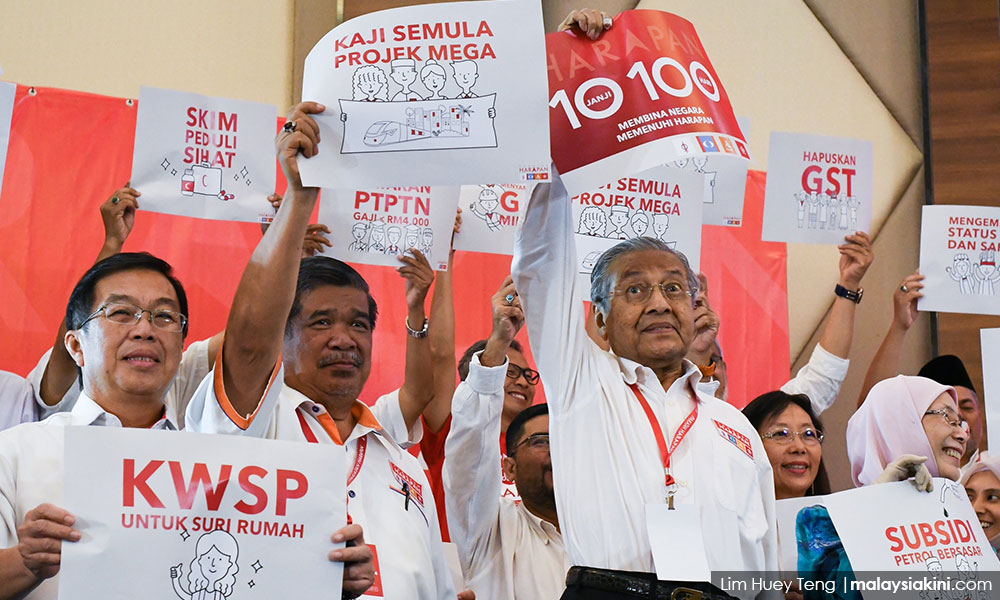
The new has come, and the old must make way. Promises must be kept, not given a new description. If you can’t keep a promise, don’t make it.
A reformist leader has to fulfil all the promises and not engage in “doublespeak”. For a start, promises are not guidelines, another Mahathir faux pas. Guideline is not a synonym for promise.
If a promise cannot be fulfilled within 100 days, it is not the end. It is a broken promise when no effort has been made, no explanation given, no apology given, and no reason not to deliver it, after a reasonable time.
The promised deadline might have been unrealistic. It will be the test of the government’s credibility whether if at all it fulfils all the promises given, if not within 100 days, then at a reasonable later date.
As the Malaysiakini checklist of 10 promises shows, the promises are at different stages of fulfilment, and that’s better than the “fail” PAS gave.
Mahathir’s influence
Mahathir is doing a steadying job, aside from the faux pas, new national car project, some unfulfilled promises in 100 days, and so on. He is in his element. He is an inspiring and exemplary leader. Like the late former Singaporean prime minister Lee Kuan Yew, he sets an exhilarating work pace for others.
He is not lazy, lecherous, or lusts after money. He sets a good example in his fit and healthy lifestyle and is a paradigm of virtue for others in this regard. He is an encouragement to ageing people everywhere and has blown to smithereens the concept of a predetermined retirement age.
The danger of Mahathir is not that he becomes a dictator, but that others may make him a demigod. It also remains to be seen whether the country can afford another failed national car project. He can be a runaway train and it is important the cabinet and people keep him on the tracks.
Repealing the Anti-Fake News Act is a start but it is the Sedition Act that must go. Legislated by the British in 1948, its primary purpose then when they ruled Malaya, as during Najib’s reign of kleptocracy, was to quell public and political dissent and to stifle corruption exposés.
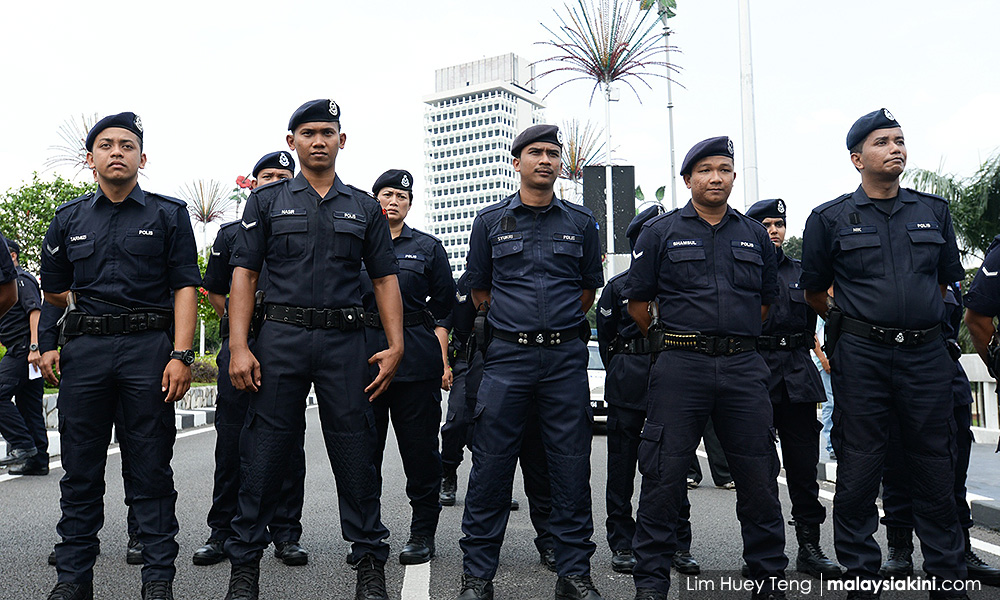
The idea of sedition in a democracy is self-contradictory. How can you have a new government without working to replace the incumbent? Yet, they deem it sedition.
The sedition law conveniently quashes attempts at regime change - it is an oxymoron. All the standing charges against citizens must be quashed instead and the heinous law abolished.
Besides political change, there is no societal reformation unless the feudalistic, unfair and divisive system goes and the anti-advancement “sacred cows” are slaughtered.
Feudalism obstructs positive change. No one in government I can think of but Mahathir has the influence to make radical societal change. He has the track record to do it.
The flaws that hamstring the country need as much redress as the mismanaged economy. GDP growth rates hide the unequal distribution of national wealth. Mahathir, the “big picture” visionary, must think of the small man and his struggles.
These days, to see former prime minister Najib make so much noise and tell the new government how to govern is rather quirky. “Elegant silence” characterised his tenure when he was the country’s leader. Why teach Mahathir, his mentor, how to suck eggs now? The man has more troubles than credibility.
The BN opposition has to do better than make noise. They have to start building up their zero balance credibility. Khairy Jamaluddin would make a better opposition leader.
You need devoted conviction politicians like the DAP diehards to be in opposition politics. Without the gravy train, I doubt many BN types want a taste of opposition politics.
Building a common future
Rebuilding and reshaping Malaysia requires national effort and it requires Mahathir to listen closely to others.
The cabinet may not want to be a rubber stamp, and must boldly support or oppose ideas that are unviable or simply undesirable, such as another Malaysian car project.
It is as unviable as the original ambition. Cars are going electric. Where is the much-needed infrastructure to recharge vehicles? It’s just an opinion, but with limited funds, the government is better off investing in renewable energy and focusing on the agriculture industry or making cars cheaper for Malaysians.
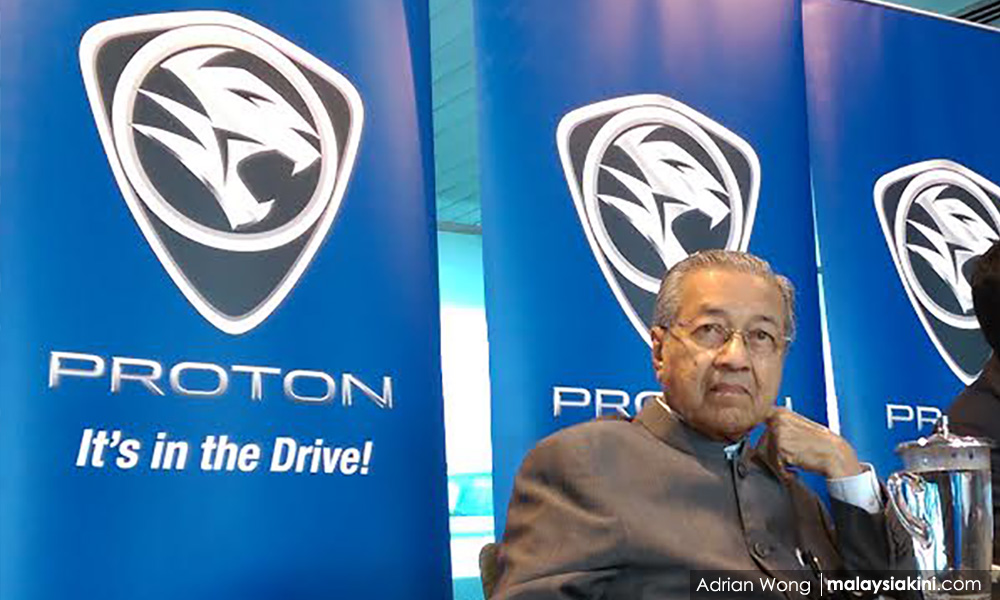
Economic development must also see a social and political agenda that eventually subtracts race and religion from the national formula.
By this, I mean the return of meritocracy in government and the end of the evil idea of “ketuanan Melayu” that is anti-Islam and anti-constitution.
Every citizen has to be treated equally. Otherwise national unity will never be achieved when you have a nation of those who rely on “entitlement”, not hard work.
The government has yet to do anything radical, something constructive, to mix the races in its policies and programmes.
Mix up the races and make English the common language among Malaysians. Promote Malay as the official language and encourage it to flourish, not forced upon people.
Create situations where the different races can study, work and do business together and meld for them a common, not separate, future. Banish the separatist ideas of the extremists, racists and bigots of all sides. This may yet be the most significant reform yet after GE14.
How can a patriotic, nation-loving citizen sing the national anthem, “Negaraku”, with a void in his or her heart because the government functions on policies that make them feel deprived, disadvantaged and downgraded?
Going all the way
A Pakatan Harapan reformist government must go all the way in removing the administrative anomalies and unfairness in the country. It will need more than 100 days to do that.
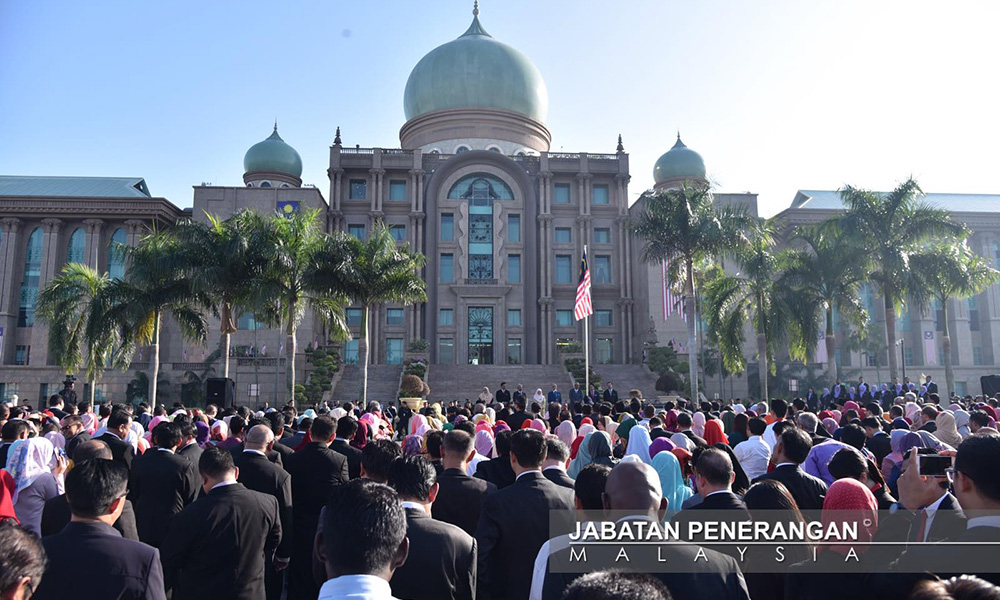
As leader of the government, Mahathir must not outrun the reform agenda with inordinate economic priorities. That was his legacy before - economics before equality - and he should make more use of Anwar to achieve political reform.
Reform must undergird all that Mahathir does because it was the people for reform who put him in power as he surfed on the gigantic wave of rebellion against Najib’s kleptocratic government.
As a reformist leader, he still has to take more radical steps and I’m sure he will if his political instincts don’t stop him.
Doing the right thing requires farsightedness and courage and has to be above politics. There are social reformers and politicians, sometimes rolled in one. Let’s hope we see more of these “rolled in one” politicians in Mahathir’s government beyond 100 days.
I’m glad for now Mahathir is running the show. But he needs to avoid putting questionable people in crucial positions. He can take more than 100 days to fulfil his promises if necessary.
However, the late master of positive thinking Norman Vincent Peale offers a good guideline on keeping promises: “Promises are like crying babies in a theatre, they should be carried out at once.”
STEVE OH is the author of the novel "Tiger King of the Golden Jungle" and composer of the musical of the same title. He believes in good governance and morally upright leaders. - Mkini
✍ Sumber Pautan : ☕ Malaysians Must Know the TRUTH
Kredit kepada pemilik laman asal dan sekira berminat untuk meneruskan bacaan sila klik link atau copy paste ke web server : https://ift.tt/2PgHceF
(✿◠‿◠)✌ Mukah Pages : Pautan Viral Media Sensasi Tanpa Henti. Memuat-naik beraneka jenis artikel menarik setiap detik tanpa henti dari pelbagai sumber. Selamat membaca dan jangan lupa untuk 👍 Like & 💕 Share di media sosial anda!



















Post a Comment